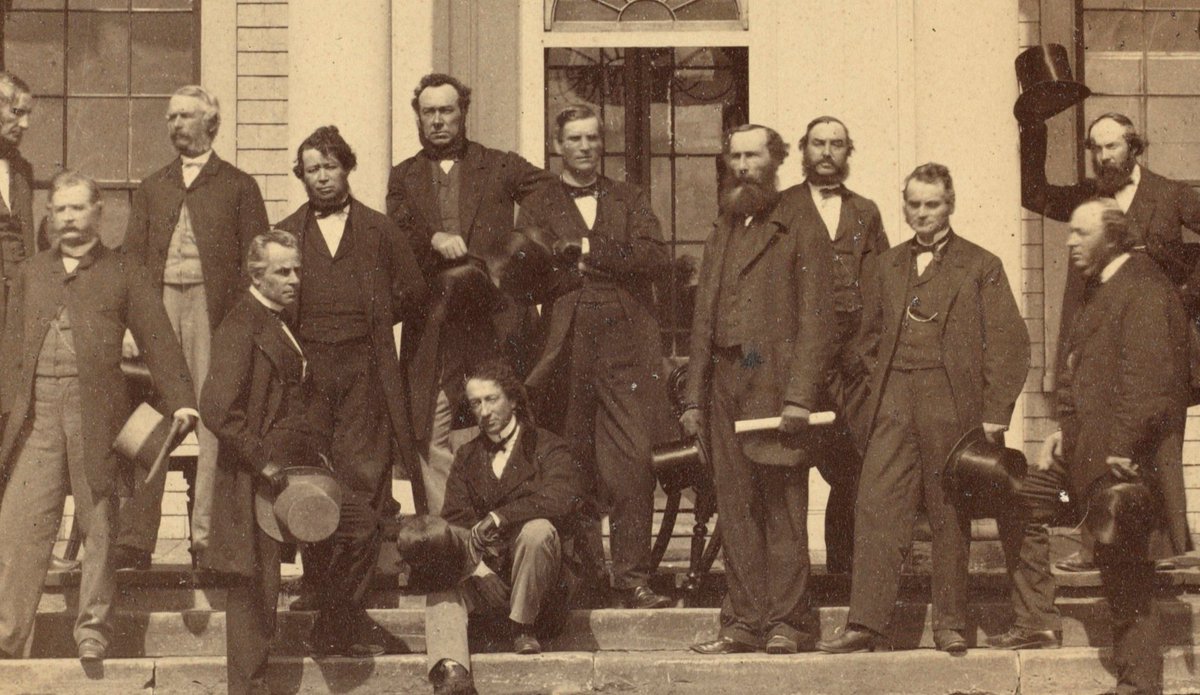
Since Terry Glavin goes out of his way to say that his most recent piece is not "residential school denialism," let me quickly explain why it is. A thread on residential school denialism 🧵: 

To start, residential school denialism is NOT, as Daniel Heath Justice and I have explained, the outright denial of the Indian Residential School (IRS) system’s existence. It is, rather, an attempt to misrepresent basic IRS facts/info to undermine truth and reconciliation.
We argue, "Residential school denialists employ an array of rhetorical arguments. The end game of denialism is to obscure truth about Canada’s IRS system in ways that ultimately protect the status quo as well as guilty parties." This is what Glavin does: theconversation.com/truth-before-r…
The rhetorical device Glavin uses in his piece is: false framing. To cast doubt on abuses and deaths at IRS - which have already been well documented - Glavin focuses on a media mistake: that some outlets initially reported findings as mass graves, rather than unmarked graves.
This was - and continues to be - an error. Communities were clear that they were locating unmarked graves. But Glavin, in his piece, BEGINS with a false frame suggesting that a New York Times article "Mass Grave of Indigenous Children Reported in Canada" is "how it all began."
He claims that the NYT article was the "first story" about the confirmation of unmarked graves by Tk’emlúps te Secwepemc. That is incorrect, but it allows him to then argue that everything in the last year was done based on this mistake and should thus be discredited.
From that false frame, Gavin then chooses only to focus on errors made by the media - and there/are many - to feed his narrative that, while seemingly about correcting media bias, actually serves to cast doubt on work being done by communities and for reconciliation etc.
The basic formula Glavin uses is this: mass graves=error=there is no issue. He employs this formula to distract attention away from the unmarked graves being confirmed at MANY former residential schools and that most people rightly find shocking and abhorrent.
In short, Glavin's piece is textbook denialism. He uses a false frame to argue that this all overblown - rooted in error - and that there are thus more important things to focus on, as he suggests in the conclusion. This is a classic distraction tactic used by denialists.
Now, journalists - and all of us, really - need to be careful about the language we use, because mistakes fuel denialism. But, while Glavin takes aim at "the media," he is ALSO the media. And his false framing here and use of other denialist talking points needs to be challenged.
We need truth *before* reconciliation. The use of residential school denialism by many journalists, politicians, and even some of my fellow historians, needs to be identified and confronted.
As usual, as an IRS historian and expert on residential school denialism, I am offering to engage with any open and honest questions here, DM, email etc. This is a hard time for many doing hard work, so if I can be of service to promote education, hit me up.
I will be most happy to clarify any questions/point you in the direction of excellent and trustworthy sources of information from experts and Survivors themselves. There are many resources out there.
• • •
Missing some Tweet in this thread? You can try to
force a refresh






